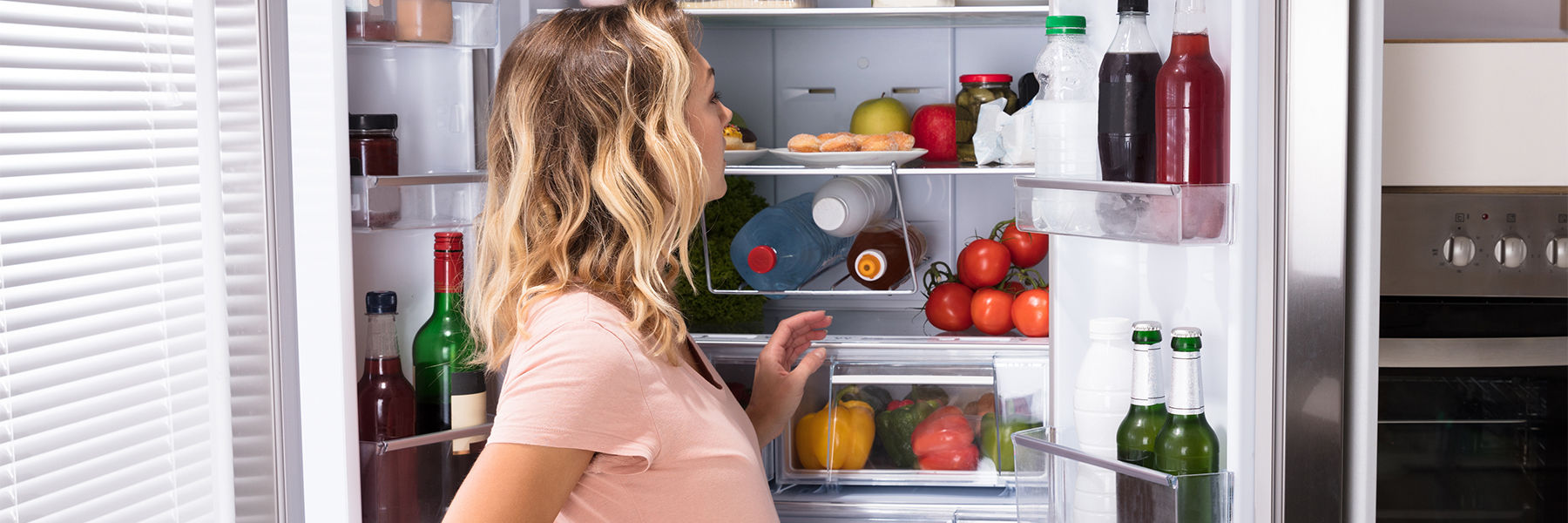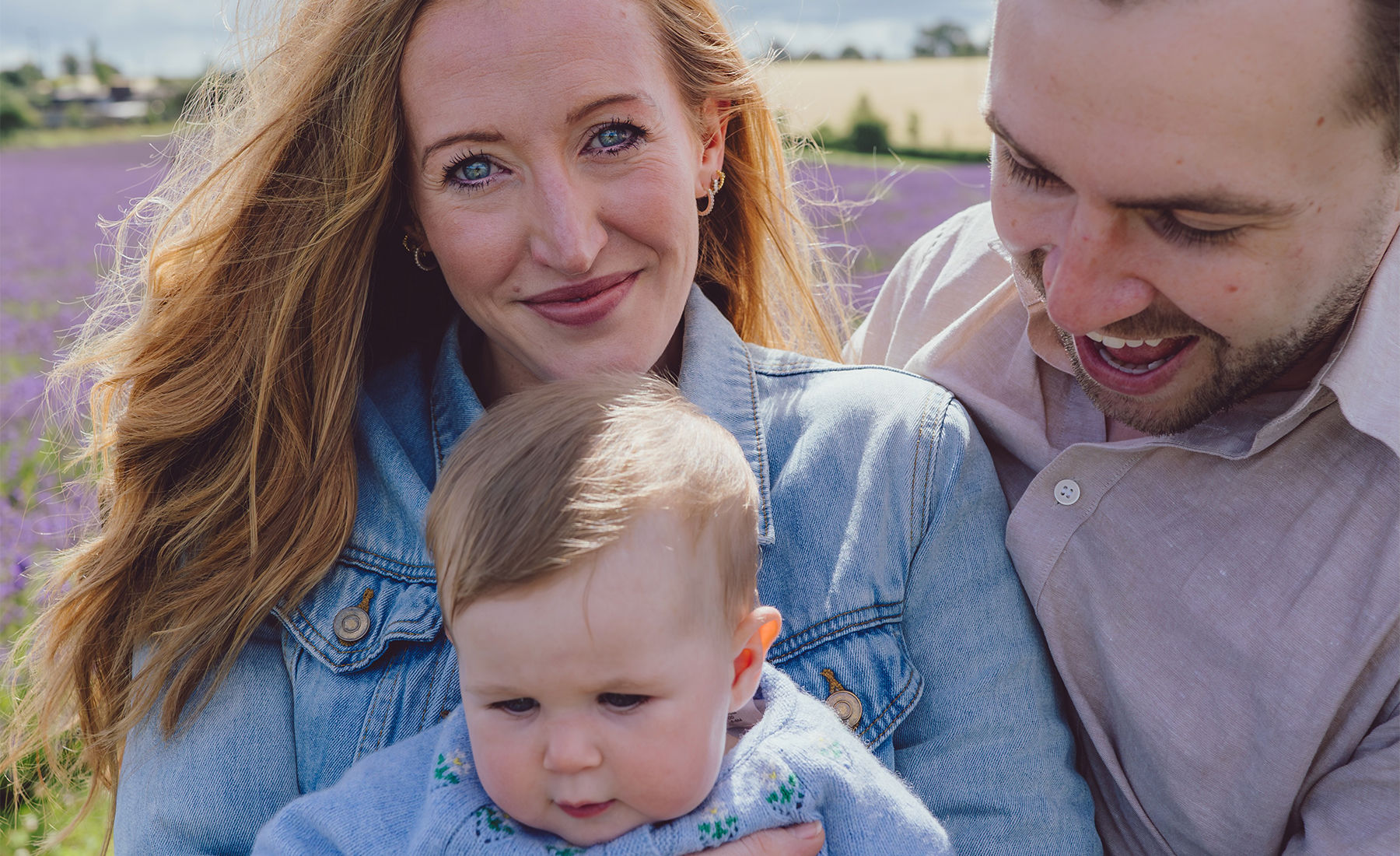Use arrow keys to navigate through the menu items. Use Tab key to navigate through the menu banners.
Pregnancy Food Allergies

Pregnancy Food Allergies
Can you reduce your child’s risk of allergies by avoiding certain foods during pregnancy? Dietitian and mum Lucy Upton tackles your concerns
Hi, I'm Lucy! As an experienced children’s dietitian specialising in food allergies, I work with babies, children, and their parents every day in my clinics and share science-backed nutrition information on my website and social media accounts. I'm also a new mum to my daughter Aurelia. Parenting has added a whole new level of experience to my day job!
If you’re expecting a baby, you may wonder whether what you eat during pregnancy can affect your child's chances of developing allergies. It's a valid concern because a mum’s health and eating habits during pregnancy can significantly impact her baby’s growth and development.
Scientists are also investigating whether specific foods or nutrients consumed during pregnancy can help reduce the risk of allergies in babies. With lots of conflicting information online, it can be hard to get a clear picture. So, I've answered the most common questions for you below. Let's clear up some of that confusion!
Should I avoid peanuts (or other food allergens) to stop the baby from developing an allergy?
The short answer is no. Unless you are allergic to peanuts or other food allergens yourself – the most common are milk, eggs, soya, peanuts, tree nuts, wheat, sesame, fish, and shellfish – there is no need to exclude them.
Based on the studies we have right now, experts agree that avoiding common food allergens like peanuts during pregnancy won't reduce the chances of your child developing an allergy to those foods. In fact, some studies have found the opposite – that consumption of these foods during pregnancy could protect your baby from food allergies. It's also worth remembering that peanuts and other common food allergens contribute important nutrients to your diet when pregnant. For example, peanuts are a great source of fibre, B vitamins and zinc.
Are there foods I can eat that will lower my baby's risk of allergy?
At the moment the best advice for mums-to-be is to follow a balanced and varied diet during pregnancy. Your diet should include plenty of fruits, vegetables, healthy fats, grains, and other starchy foods, as well as protein, such as meat, fish, eggs, beans/lentils/pulses, and dairy (or fortified alternatives). Don't forget to take the daily supplements recommended for pregnant women: vitamin D and folic acid.
Recent studies show us how important it is for pregnant women to have a diverse diet to reduce the risk of allergies in their babies. Here are some easy ways to add variety to your diet.
-
Choose fruit and vegetables of various colours.
-
Consume a range of grains, such as oats, wheat, rice, whole grains, rye, corn, and barley.
-
Incorporate different beans, lentils, and pulses into your meals (try choosing a different can each week).
-
Explore some new recipes to improve diversity.
I suffer from food allergies; how can I eat safely during pregnancy?
If you have food allergies and are expecting a baby, it's understandable to be extra cautious about what you eat. Here are some tips to help you eat safely during pregnancy:
-
Continue to carefully read food labels to avoid your known allergens.
-
Communicate clearly when eating out and about your food allergies. Don't be afraid to double-check or change your mind.
-
Talk to your healthcare providers – make sure they know about your food allergies.
-
Focus on foods you can eat, keeping your diet as varied as possible.
-
Be prepared! Consistently carry any medication with you, such as antihistamines and adrenaline autoinjectors, and ensure they remain up to date.
-
Consider seeing your doctor to review your allergy action plan.
Remember, caring for yourself and your baby is the most important thing, so don't hesitate to reach out for help and support when needed.
Are there any supplements I can take during pregnancy to lower my baby's risk of allergy or other allergic conditions like eczema or asthma?
Pregnant women often ask me whether they should take specific vitamins, minerals, or probiotic supplements to lower the risk of allergies for their babies. Right now, the scientific research on this topic doesn't give a clear answer. We need more research before making recommendations. That said, during pregnancy you should make sure to follow the general advice on supplementation:
-
Folic acid: Take 400 micrograms daily when trying to conceive and up until 12 weeks pregnant.
-
Vitamin D: Take 10 micrograms per day (or 400IU) throughout your pregnancy.
Pregnant women following a vegetarian or vegan diet may need additional iodine, iron, omega-3 fatty acids and/or vitamin B12 supplementation. Talk to your GP or midwife for more information.
I have a food allergy; will my child be allergic to the same food?
While food allergies are not directly inherited, children whose parents have food allergies or ‘atopic conditions’ such as hay fever, asthma or eczema are at a higher risk of developing similar conditions. Environmental factors may also play a role. However, not all children with parents who have allergies develop food allergies themselves, and strategies such as exposure to allergens during weaning can reduce the risk.

Dietitian Lucy Upton with her partner and daughter
About Lucy
Lucy Upton is a Children’s Dietitian and feeding specialist with over 14 years of experience. Her aim is to provide parents with science-backed but realistic nutrition and feeding advice. You can find Lucy on her website, Instagram, and TikTok.
Help & Customer service
- Help Centre
- How to shop
- Product recalls
Payment Methodslist with 8 items
- Asda Group of Companies
- Modern Slavery Statement
- Electrical Waste Recycling
- Terms & Conditions
- Customer Review Policy
- Privacy Centre
- Cookie Settings
- Accessibility
© ASDA 2025